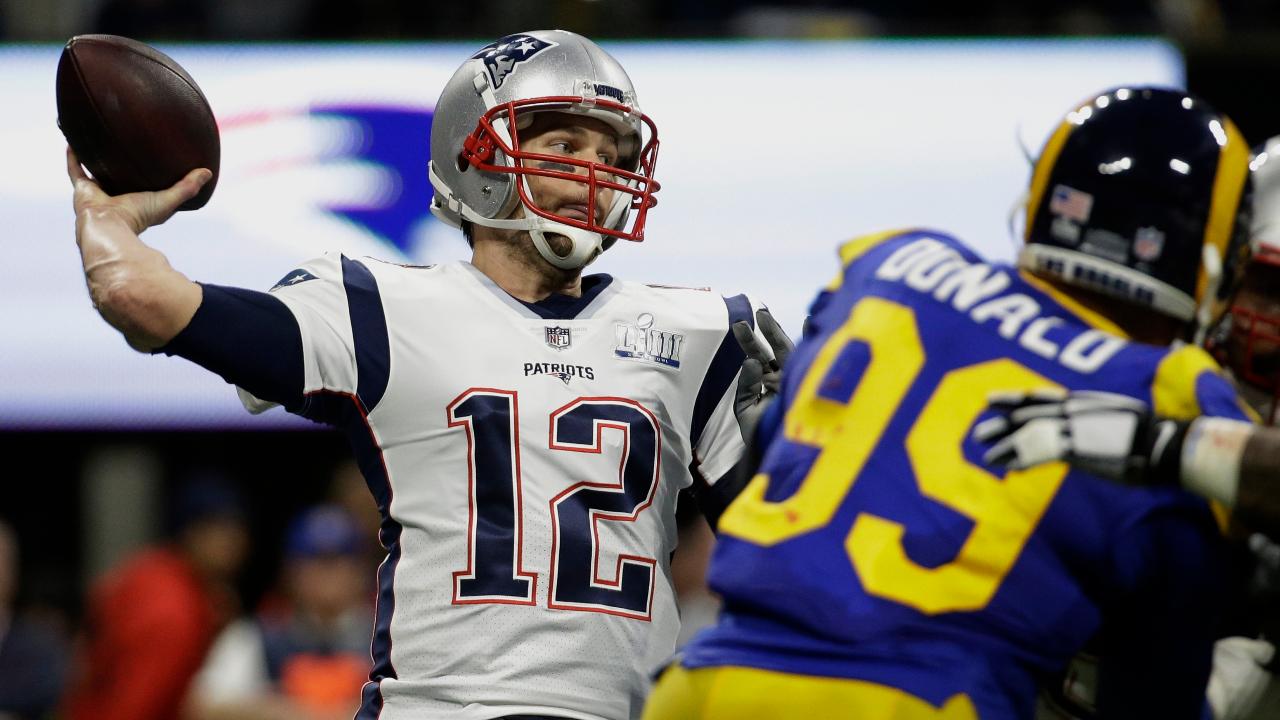Tom Brady's cliff jump: How off-field injury risks affect NFL contracts
New England Patriots quarterback Tom Brady drew some parental criticism last weekend for posting a video of himself jumping off a cliff with his young daughter, but team officials may have been the ones cringing at the sight of their franchise quarterback’s adventurous move.
The video, which showed Brady and his six-year-old daughter, Vivian, leaping off a small cliff in Costa Rica, drew reaction from the likes of Stephen Curry and Dwayne “The Rock” Johnson on Instagram, the latter of whom said the clip gave him “anxiety.” While some commenters found the video humorous, others argued the stunt was dangerous for both the quarterback and his daughter.
While Brady emerged from the short jump without a scratch, the stunt actually could have had implications on his playing career. The NFL’s standardized contract bars players from engaging in activities, such as mountain climbing or sky diving, that could impact their ability to perform on the field.
“This is not an activity that fits squarely within those prohibitions, because he wasn’t sky diving or jumping from a high cliff,” said Daniel Wallach, legal analyst for The Athletic and founder of the Wallach Legal sports law firm in Florida. “He was just diving, but some contracts even forbid diving, so depending on the precise language of Brady’s deal, this may either fall outside of it or give the team a right to void his deal if he were to become injured as a result of participating in that activity.”
The NFL’s standardized player contract, which is included as an exhibit in the league’s current collective-bargaining deal, states that players cannot “engage in any activity other than football which may involve a significant risk of personal injury.” Other pro sports leagues, including Major League Baseball and the National Basketball Association, include similar language in their contracts.
Teams can specify various off-field activities that constitute a “significant risk of personal injury.” For example, Arian Foster’s 2012 contract extension with the Houston Texans specifically barred him from “water or snow skiing, surfing, hang gliding, bungee jumping, scuba diving, sky diving, rock or mountain climbing, race car driving as driver or passenger, riding a motorcycle, motor bike, all-terrain or similar vehicle as driver or passenger, travel on or flight in any test or experimental aircraft, or serving as a pilot or crew member on any flight.”
If a player were to violate that portion of their contract and experience an injury, teams would have the right to void the remainder of their guaranteed pay, or even seek to recoup a portion of their signing bonus, Wallach said. However, a player of Brady’s stature may have negotiated a deal with looser restrictions.
“Everything is negotiable. The more important of a player you are to a team’s success, the greater the leverage that you would enjoy,” Wallach said. “With greater leverage, you can negotiate items such as off-the-field activities, such as what are included, what are excluded.”
CLICK HERE TO GET THE FOX BUSINESS APP
Brady has won six Super Bowls as a member of the Patriots. He is set to earn a $14 million base salary for the 2019 season.




















